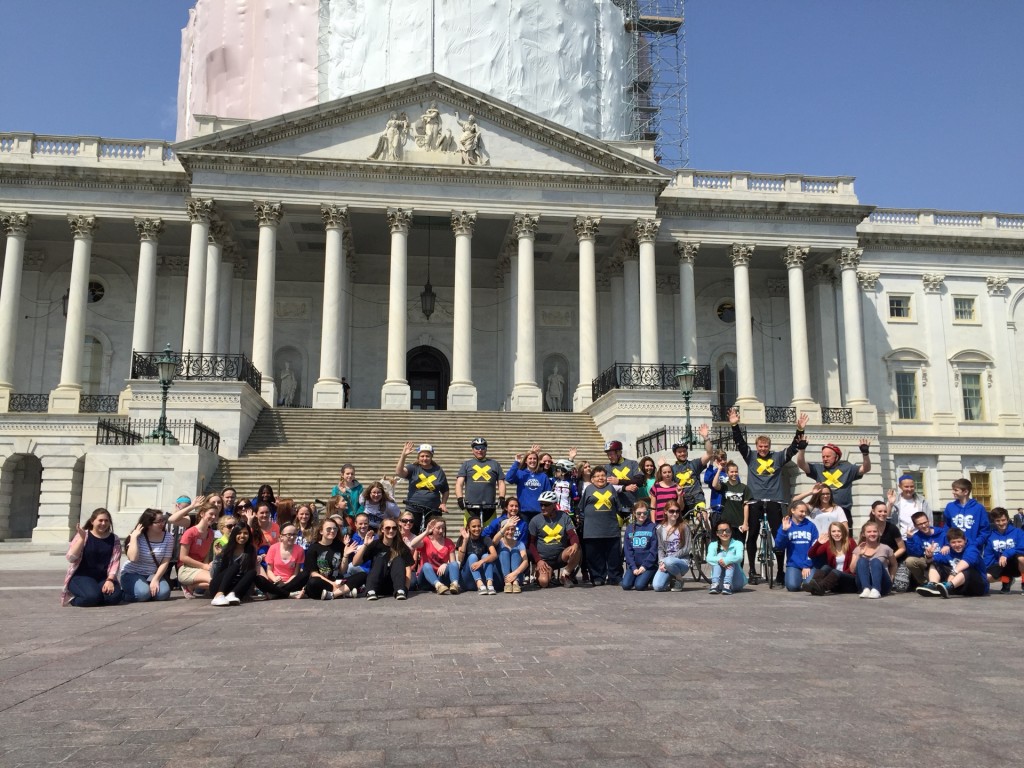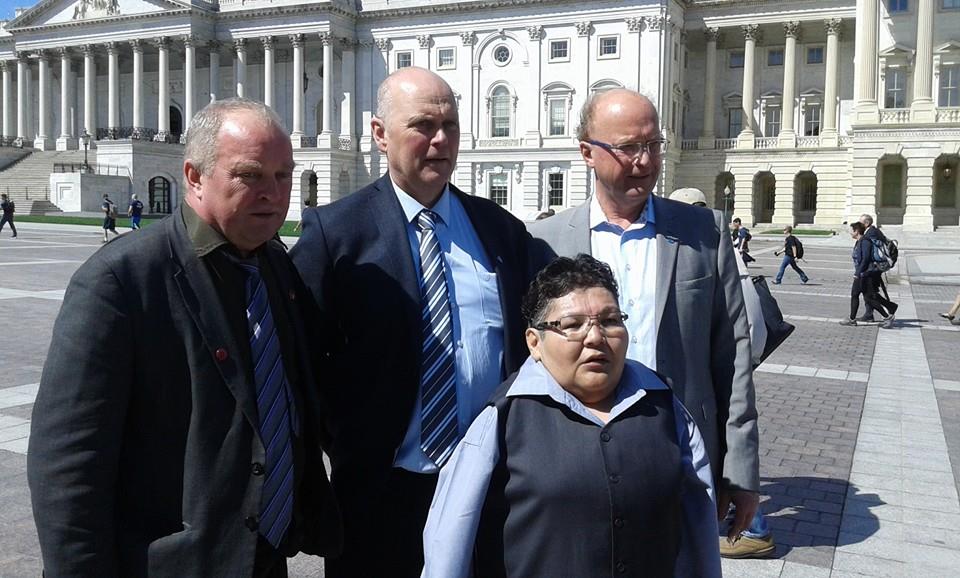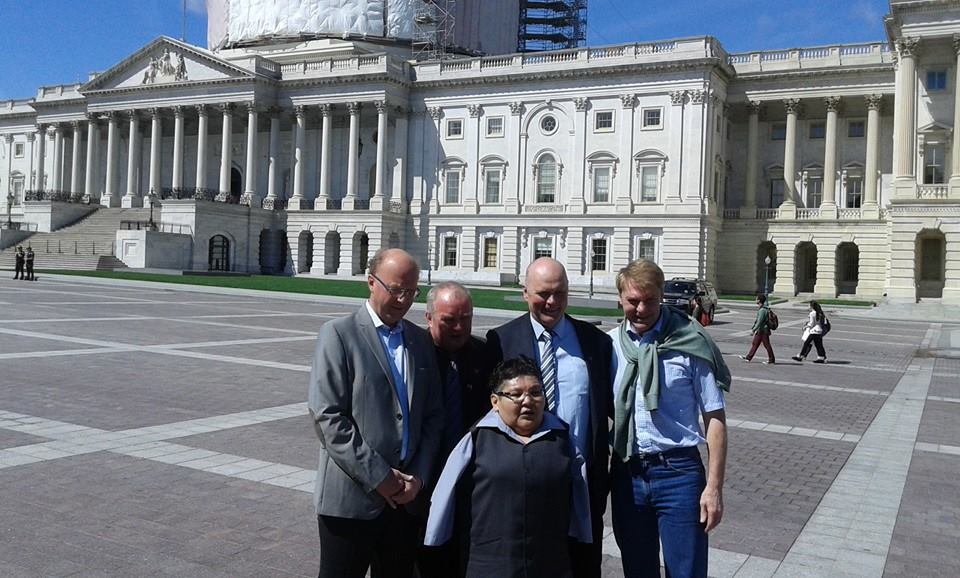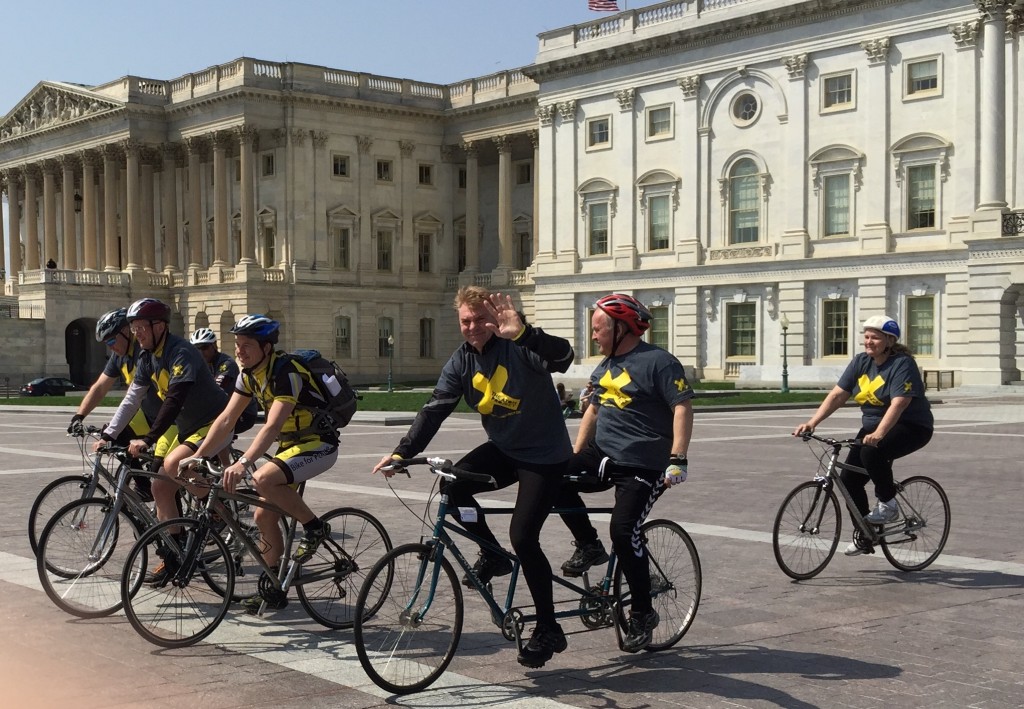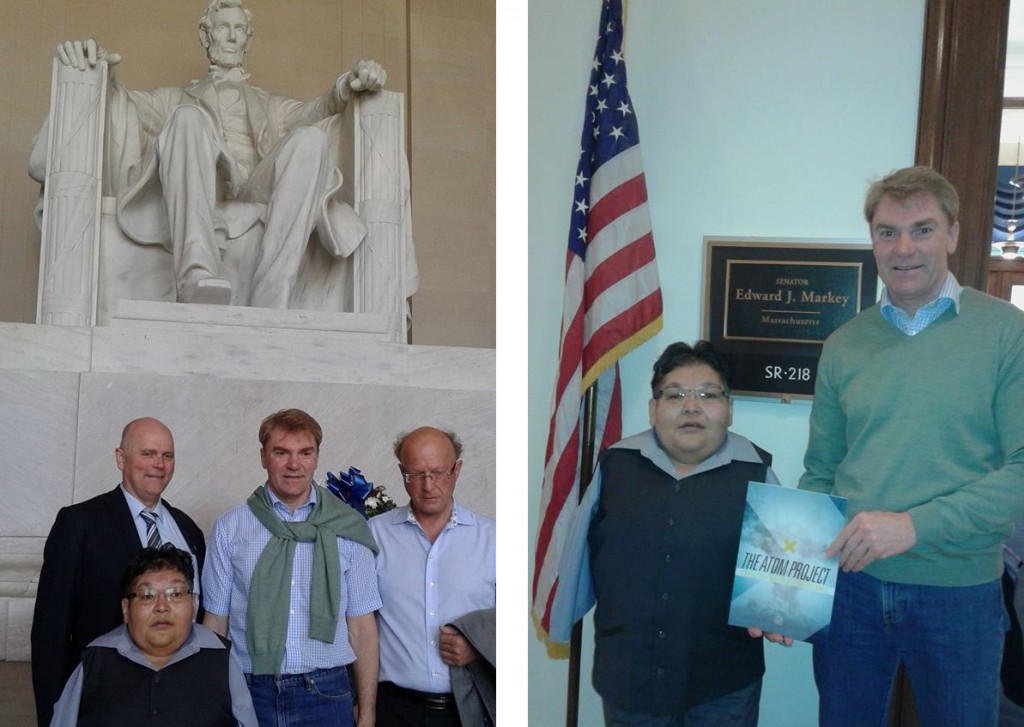WASHINGTON, D.C. – On April 21, the Bike Away the Atomic Bomb riders began their journey from Washington, D.C. to New York in another push to a global drive to rid the planet of nuclear weapons.
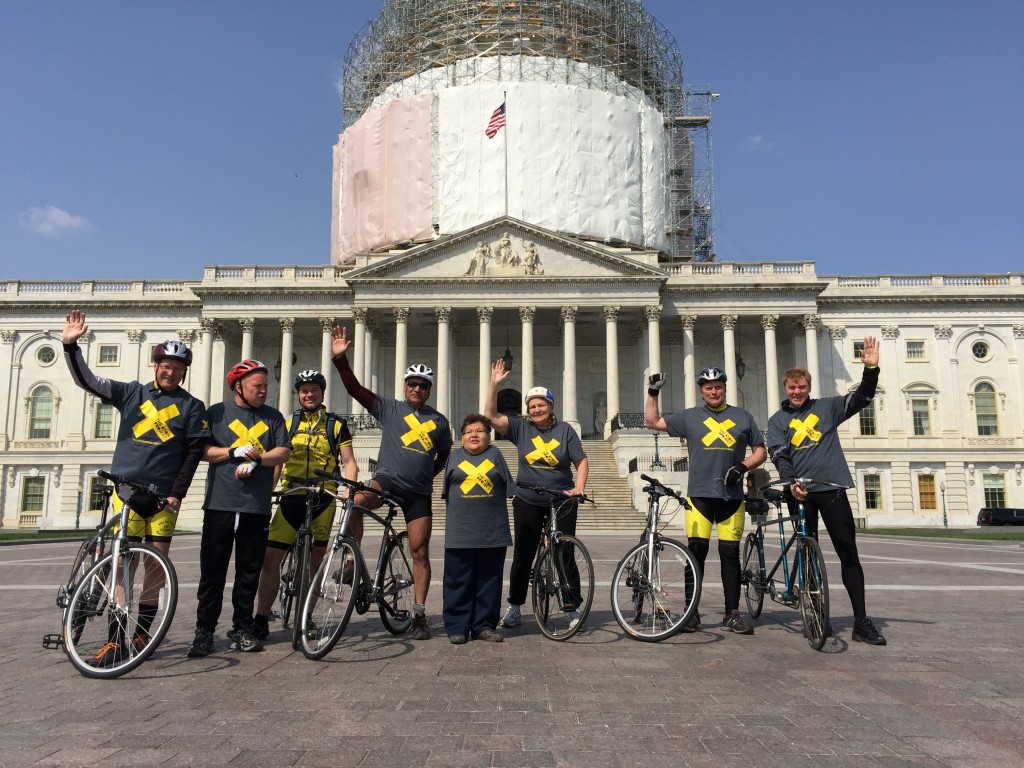 The project, coordinated by Bike for Peace, Mayors for Peace and The ATOM Project, the global online petition against nuclear testing, is a call for real action to be taken at the UN Nonproliferation Treaty Review Conference in New York that begins April 27.
The project, coordinated by Bike for Peace, Mayors for Peace and The ATOM Project, the global online petition against nuclear testing, is a call for real action to be taken at the UN Nonproliferation Treaty Review Conference in New York that begins April 27.
Bike for Peace and The ATOM Project, have joined Global Wave 2015 in its schedule of coordinated public actions taking place this month as the UN prepares for the conference. Global Wave 2015 is urging humanity – and particularly the decision-makers at the UN conference – to wave goodbye to nuclear weapons.
Activists from around the world gathered in Washington, D.C., to kick off the Bike Away the Atomic Bomb ride.
Tore Nærland, co-founder of Bike for Peace, and Thore Vestby, mayor of Frogn, Norway, who is also vice president of Mayors for Peace and a member of Parliamentarians for Nuclear Nonproliferation and Disarmament (PNND), will ride from Washington through Baltimore, MD, Wilmington, DE, and Princeton, NJ over four days before arriving in New York on April 24, just ahead of the beginning of the month-long conference. They are joined along the way by Frank Tomlinson, vice president of Bike for Peace; Svein Arne Jerstad, mayor of Kvinesdal, Norway; and Ann Suellentrop, an American anti-nuclear activist, plus Kazakhstan’s first ever Olympic gold medallist Vladimir Smirnov and members of the Potomac Pedallers Touring Club. And they will supported and joined for meetings throughout the ride by Karipbek Kuyukov, Honorary Ambassador of The ATOM Project and a famous armless artist.
The riders began from Capitol Hill on April 21, a Bike Away the Atomic Bomb press release reported, after a starting ceremony including speeches by Kazakh Ambassador to the U.S. Kairat Umarov.
Bike for Peace representatives have crossed more than 100 countries since the founding of the organisation in 1977, and Vestby has joined Naerland and Tomlinson on rides through most of the world’s nuclear-armed states. For this tour, Vestby says, he has a specific message: That nuclear weapons cannot be used, because of their enormous humanitarian and environmental consequences, and are therefore useless.
He takes the message from Colin Powell, he said, who discusses in the introduction to the film “Nuclear Tipping Point,” about how he came to realise nuclear weapons must never be used.
“The one thing that I convinced myself of after all these years of exposure to the use of nuclear weapons is that they were useless. They could not be used. If you can have deterence with an even lower number of weapons, well then why stop there? Why not continue on, why not get rid of them altogether?” Powell says in the film.
Vestby is hoping to meet decision-makers on this trip – particularly those not yet committed to disarmament. “I really hope to meet a lot of mayors along the route, but also senators and members of the House of Representatives in D.C. I also want to meet Republicans who are not on the nuclear disarmament path. I want to hear their arguments. Those are the ones that are important to talk to. You know, the peace and disarmament people are also important, but they are already ‘in place,’ they do not need to be convinced,” he told The Astana Times on April 17.
Kuyukov, who was born with no arms near the now-closed Semipalatinsk Nuclear Test Site, has spent decades campaigning against the use and testing of nuclear weapons, which cost him his health before he was born and devastated the community he grew up in.
In a December 2014 editorial for The Diplomat, Kuyukov called for China, Egypt, India, Iran, Israel, North Korea, Pakistan and the United States to finally sign and ratify the Comprehensive Nuclear Test Ban Treaty (CTBT). “These countries must send a clear message to the world that nuclear weapons are part of our past, and have no place in our future. … I weep when I hear those calling for a return of nuclear weapons. I fear for our planet when I read news stories about countries re-building their nuclear arsenals. After all the horror, all the fear, and all the danger, have we learnt nothing? How many more, like me, must suffer?”
The UN Nuclear Nonproliferation Treaty Review Conference, the ninth since the first one in 1975, also marks 20 years since it was agreed to indefinitely extend the treaty in 1995.

